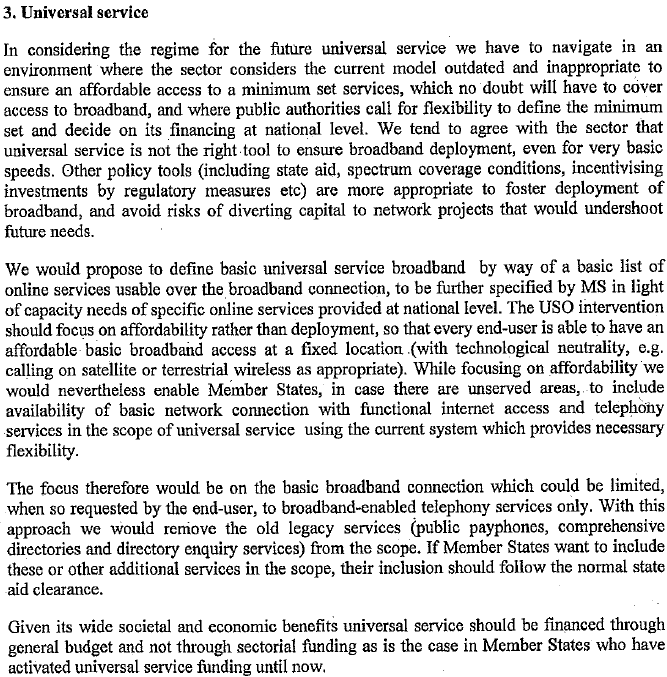EU Propose Legally Binding Broadband Universal Service Obligation
The United Kingdom is already building a legally binding Universal Service Obligation (USO) for 10Mbps broadband speeds and a new leak of future EU telecoms proposals appears to confirm that the European Commission are planning to do something similar.
A couple of weeks ago we reported on another leak of future EU telecoms policy, which appeared to all but confirm that a new target would be set to ensure that “all European households” can get a minimum Internet download speed of 100Mbps (Megabits per second) by 2025, with businesses and the public sector also being told to expect 1Gbps speeds (here).
Advertisement
The above is a commitment rather than a legally-binding USO and now EurActiv has leaked yet more documents, which reveal that the EU also intend to make “basic broadband” (the previous EU Digital Agenda defined this as anything from 0.5Mbps to 4Mbps) a legally guaranteed service for all.
However the proposals, which have yet to be fleshed out, do not currently dictate a minimum speed and would allow wireless and Satellite technologies as part of the USO fix.

At this point the UK is still part of the EU and will remain so until around 2019/20, which means that the UK Government must continue to take any proposals by the EU seriously. Similarly it’s important to keep an eye on the EU in case domestic UK policy falls behind. Currently it’s still too early to tell if the EU will end up doing something that goes beyond what the UK has already proposed, although early signs suggest that they may take a softer approach.
The new proposals should be tabled by the executive in September 2016 and will form part of the previously reported 100Mbps pledge, which could all be agreed by the end of 2017 and then implemented from 2019.
Advertisement
Mark is a professional technology writer, IT consultant and computer engineer from Dorset (England), he also founded ISPreview in 1999 and enjoys analysing the latest telecoms and broadband developments. Find me on X (Twitter), Mastodon, Facebook, BlueSky, Threads.net and Linkedin.
« Farewell to BT’s Unloved 2Mbps Rural Broadband Enabling Technology
UK Government Q and A on the New Broadband Investment Fund »
















































Comments are closed